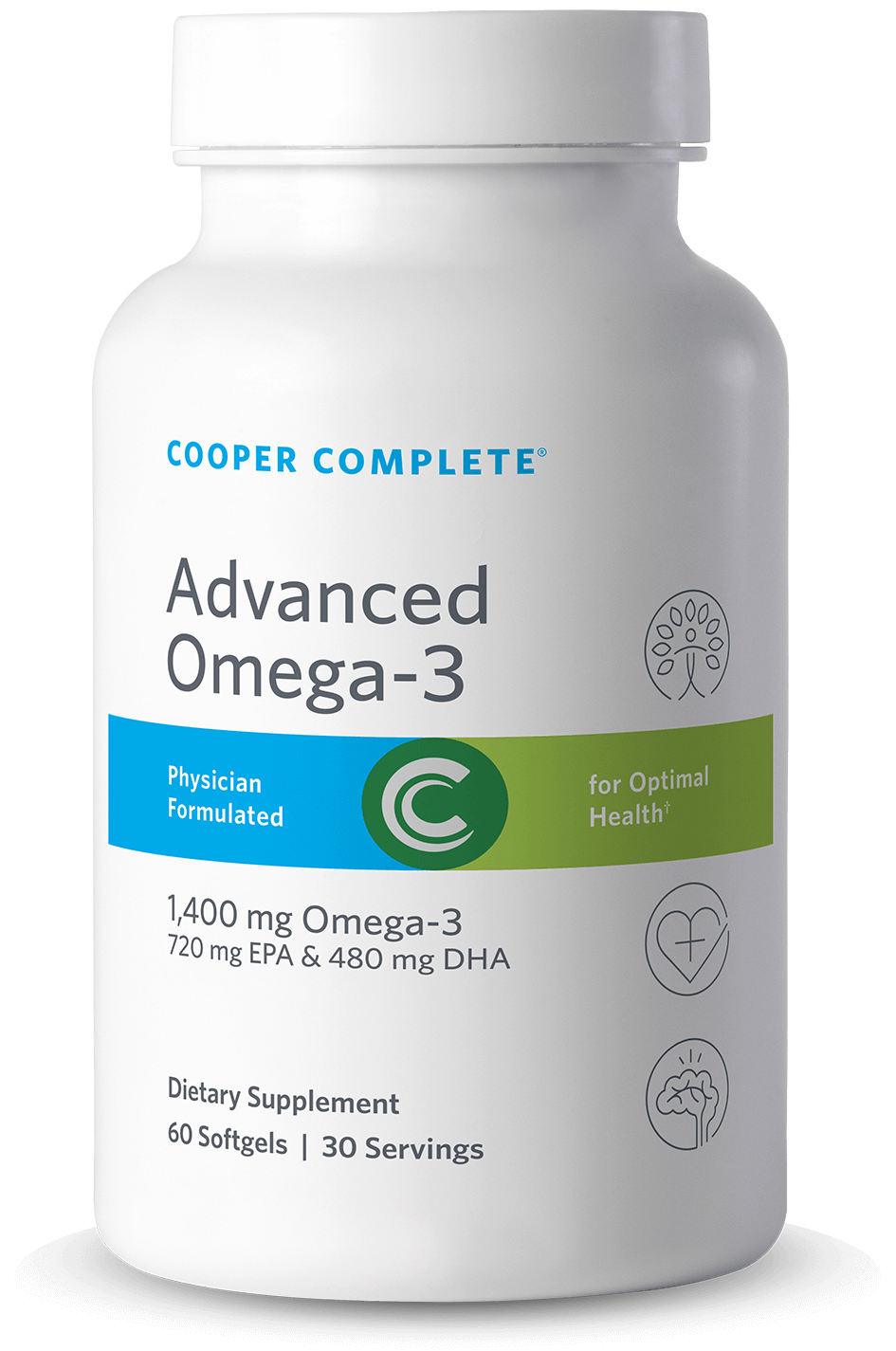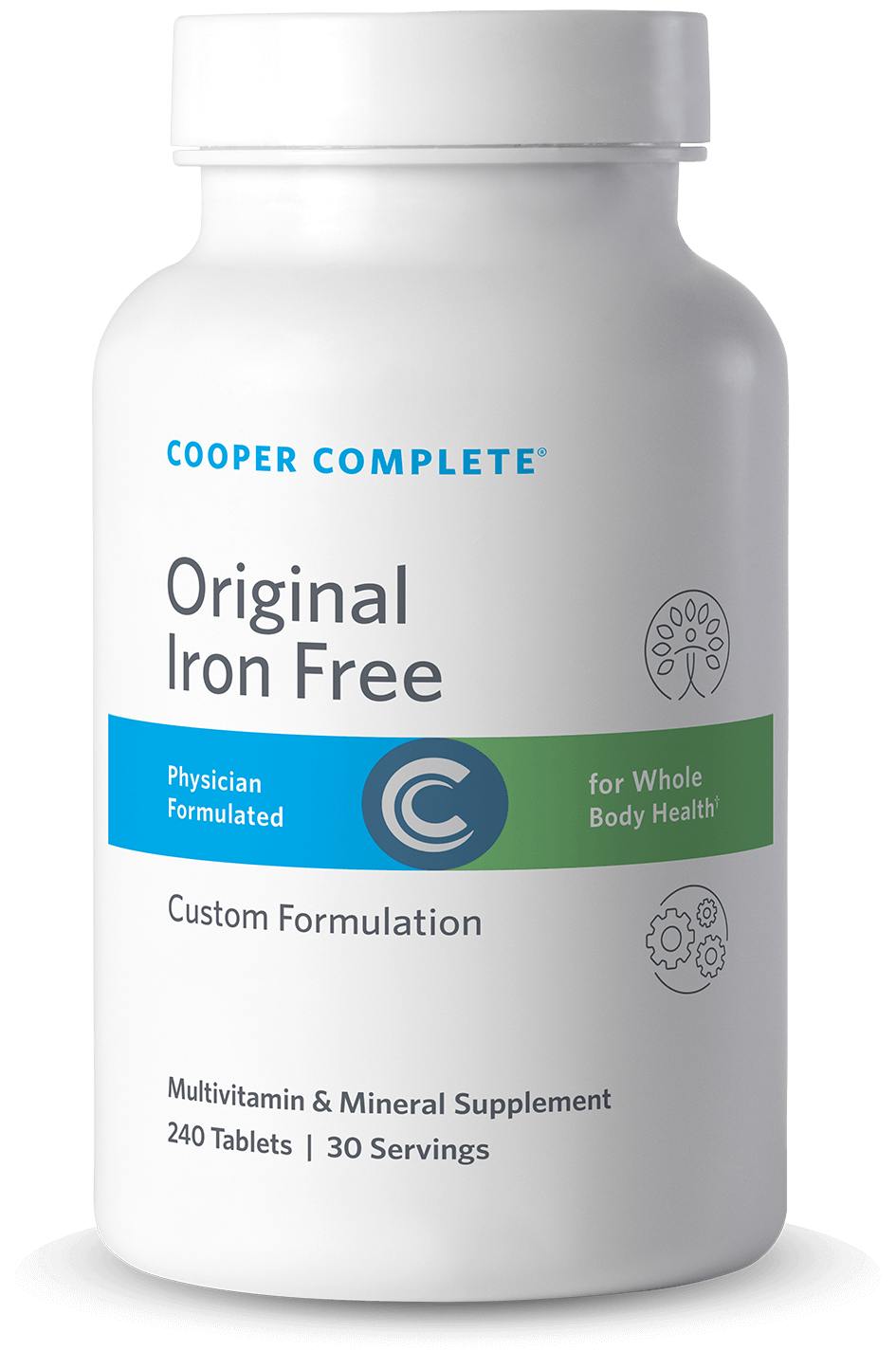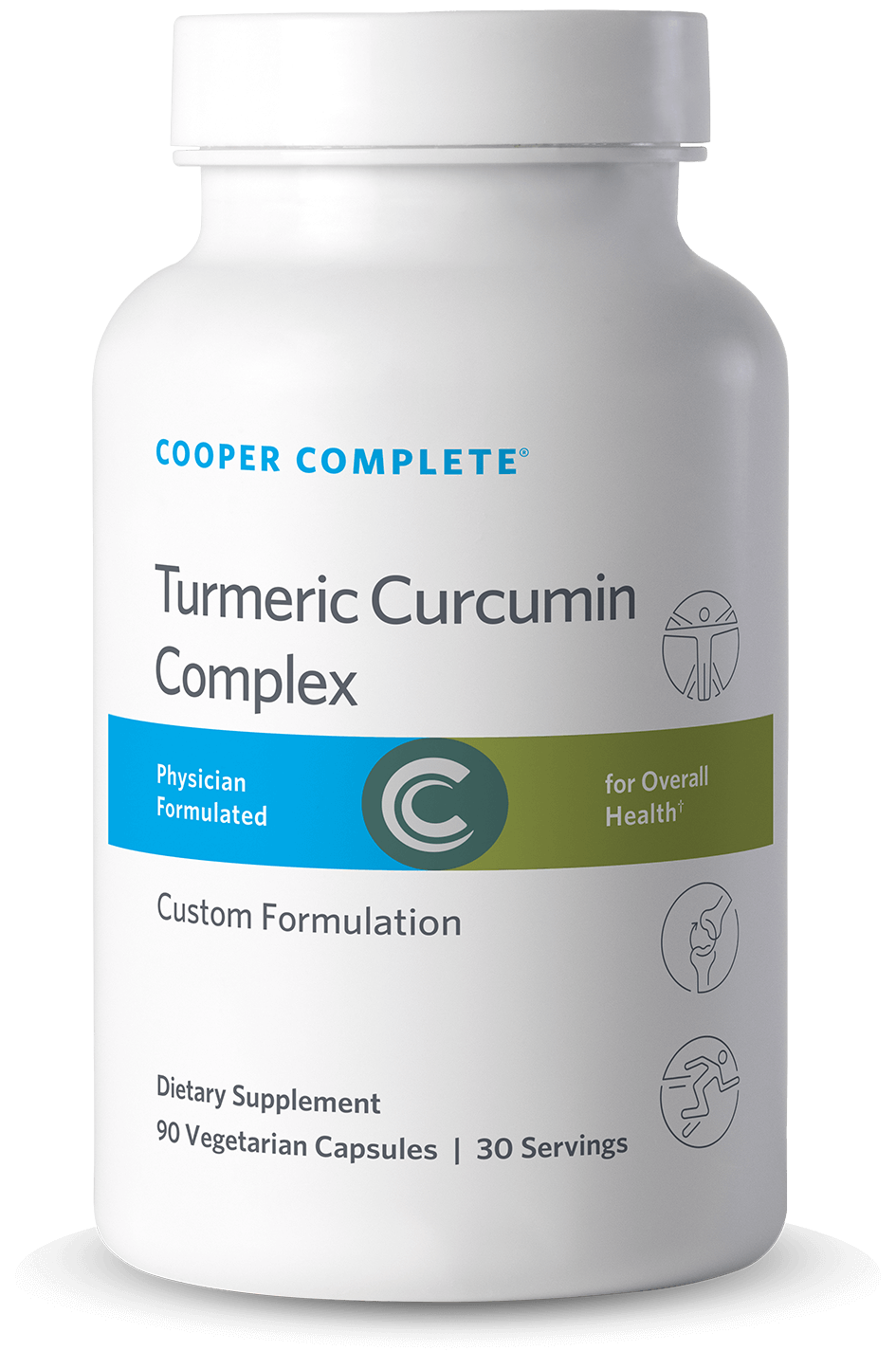Cooper Clinic Physicians on Supplements That Help Fight Chronic Inflammation

Inflammation is a natural immune system response to protect against infection, illness or injury. According to Kenneth H. Cooper, MD, MPH, Founder and Chairman of Cooper Aerobics, “acute inflammation, such as when you have a sore throat or cut your finger, is short-lived, going away within hours or days. However, following acute inflammation an individual could develop long-term smoldering inflammation called systemic chronic inflammation, which causes a multitude of medical problems.”
In an article published in the May-June 2019 issue of Harvard Magazine, “Could Inflammation Be the Cause of Myriad Chronic Conditions?” the author points out that a growing body of evidence shows common chronic conditions could be triggered by low-grade, long-term inflammation. Those conditions include:
- Alzheimer’s disease
- Cancer
- Arthritis
- Asthma
- Gout
- Psoriasis
- Anemia
- Multiple sclerosis
- Diabetes
- Depression
- Parkinsonism
In addition to untreated acute inflammation, a range of factors can contribute to chronic inflammation:
- Unmanaged stress
- Pollution
- Tobacco use
- Processed foods
- Sugar
- Refined carbohydrates
- Inactivity
- Obesity
- Inadequate sleep
There are also foods associated with inflammation in the body. Inflammatory foods include:
- Fried foods
- Red meat
- Processed meats such as sausage, hot dogs and bacon
- Sugar-laden foods and beverages
- Shortening, margarine and lard
“We have an epidemic of inactivity and obesity in the United States today,” says Dr. Cooper, “which is fueling chronic inflammation in many Americans. Remember, what is good for the heart is also good for the brain.” The following healthy habits can effectively reduce chronic inflammation:
- Exercise 30 minutes a day, collective or sustained, most days per week
- Sleep at least seven hours per night
- Socialize—avoid isolation by joining a club, synagogue, support group or volunteer at your church or in the community
- Do not use tobacco of any type
- Drink alcohol in moderation, if at all
- Take the right supplements for you
“The Cooper Center Longitudinal Study, the principal research asset of The Cooper Institute, contains more data on vitamin D and omega-3 blood levels than probably any clinic in the U.S.,” Dr. Cooper says. “Omega-3 is one of the most effective supplements to reduce chronic inflammation and possibly vitamin D. Exercising daily, maintaining a healthy weight and eating a plant-based diet are also essential to preventing chronic inflammation.”

Advanced Omega-3 Supplement
Advanced Omega 3 Supplement contains 720 mg EPA, 480 mg DHA, and 200 mg other omega-3 fatty acids in each serving of two lemon-flavored softgels. Omega 3 supplementation supports heart health, cognition, immune, and inflammatory health without any fishy aftertaste.†
$22.98 Add to cartOmega-3 isn’t Just for Heart Health
What makes omega-3 supplements so mighty? Camron Nelson, MD, Cooper Clinic President and CEO and Preventive Medicine Physician, says, “It probably has something to do with the anti-inflammatory effect of omega-3 in the arteries.”
“Because the body cannot manufacture omega-3 fatty acids, it’s important to consume them through diet and supplements. A 2019 study published in American Heart Association’s Circulation Research journal found fish oil supplements containing a specific formula of omega-3 fatty acids reduced inflammation by increasing the concentration of special molecule “mediators” that regulate the work of certain components in the blood.
However, Dr. Nelson strongly believes you can’t supplement your way out of a bad lifestyle. “I encourage my patients to first work on foundational lifestyle choices to decrease inflammation and risk for heart disease through diet, exercise and weight management, along with blood pressure and cholesterol control and only after that work do we add supplements to the mix.” Dr. Nelson recommends taking two Cooper Complete Advanced Omega-3 softgels a day to optimize heart health, which provide 1,400 mg of omega-3, including 720 mg of EPA and 480 mg DHA.
Vitamin D and Magnesium for Managing Arthritis
Arthritis, often misunderstood as a single disease or condition, refers to suffering from joint pain or disease. Symptoms often include swelling, pain, stiffness and decreased range of motion. Balancing your intake of certain vitamins through supplements has proven to help manage symptoms.
Vitamin D deficiency can cause depression, low immunity and fatigue, but can also lead to the softening of bones, increasing the likelihood of developing arthritis. Taking a vitamin D supplement helps:

Original Comprehensive Multivitamin Iron Free
Experience the difference - top-rated physician-formulated and recommended multivitamin and mineral supplement packed with 25 key vitamins and minerals, including Zinc, Magnesium, Potassium, Biotin, Selenium, Copper, Vitamins A, C, D, E, K, and activated B vitamins.†
$54.98 Add to cart- Regulate inflammation
- Maintain calcium levels in the bloodstream
- Balance phosphorus levels, which keep bones and teeth hard
Magnesium plays an important role in managing arthritis symptoms and pain by regulating inflammation and pain signaling. Taking a magnesium supplement helps:
- Strengthen bones
- Maintain nerve and muscle function
- Regulate heart rhythm and blood sugar levels
- Maintain joint cartilage
Reducing Your CRP Level
A high level of C-reactive protein (CRP), a protein found in the blood and produced by the liver, is an indicator of systematic inflammation, which may occur due to injury, infection or fever. Elevated CRP levels are also associated with increased risk of cardiovascular disease and diabetes, and can interfere with drugs taken to treat various types of arthritis. In those who have rheumatoid arthritis, lowering CRP levels reduces the spread and severity of the inflammation, as well as prevents bones from deteriorating.
A Vitamin and Supplementation study conducted by researchers at The Cooper Institute identified that supplementation with a multivitamin, such as 24-ingredient Cooper Complete Original Iron Free, reduces CRP levels. Researchers measured the effects of vitamins C, E, B6, B12, beta carotene and folate and determined:
- There was a significant reduction of CRP levels (32%) in individuals taking the multivitamin
- The prevalence of patients with a high-risk CRP level (>3.0 mg/L) reduced from 30 to 14 percent following multivitamin supplementation
- The average change in the patients’ CRP levels over the course of six months was 0.70 mg/L
- The greatest reduction in CRP levels was seen in patients who initially had elevated CRP levels
The study concluded that use of Cooper Complete Original Iron Free was found to significantly reduce CRP levels.

Turmeric Curcumin Supplement
Contains 1000 mg of turmeric extract, which is standardized to contain 95% curcuminoids, and 10 mg of black pepper in 3 vegetarian capsules. Physician formulated to support a healthy inflammatory response.
$35.98 Add to cartThe Benefits of Turmeric Curcumin for Fighting Inflammation
For centuries, turmeric has been used in different cultures as a natural remedy for various ailments. Through science, we’ve discovered turmeric contains curcumin, an antioxidant that fights unstable atoms—free radicals—which cause damage in the body. Scavenging free radicals reduces the levels of stress the body experiences. Curcumin also inhibits the release of chemicals in the body that trigger the process of inflammation, helping prevent inflammation before it starts.
Excessive inflammation in the joints is the main cause of arthritis pain. Recent reports show curcumin can be effective at slowing the amount of joint inflammation, reducing pain in the body and joints.
“Turmeric also works to suppress the protein complex NF-KB, which causes inflammation at a molecular level,” says Riva Rahl, MD, Cooper Clinic Platinum Physician. “NF-KB has been attributed to many chronic diseases such as heart disease and cancer.”
In addition to its role in fighting inflammation, research shows turmeric may also:
- Improve brain health. Turmeric can increase levels of brain-derived neurotrophic factor (BDNF), which helps form new neurons and therefore could play a role in reducing dementia. It is also shown to boost serotonin and dopamine, which reduces depression.
- Improve heart health. Turmeric is said to improve blood vessel function in addition to how it positively counteracts inflammation and oxidation.
- Prevent and perhaps even treat cancer. Turmeric may reduce cancer growth or prevent cancer from developing, as seen in lab animal subjects.
Pairing a healthy diet and exercise with vitamin supplementation and other healthy habits, you can help prevent chronic inflammation and the diseases that result from it. Your physician understands your health profile best, so it’s important to talk to him/her about which supplements are best for you.
